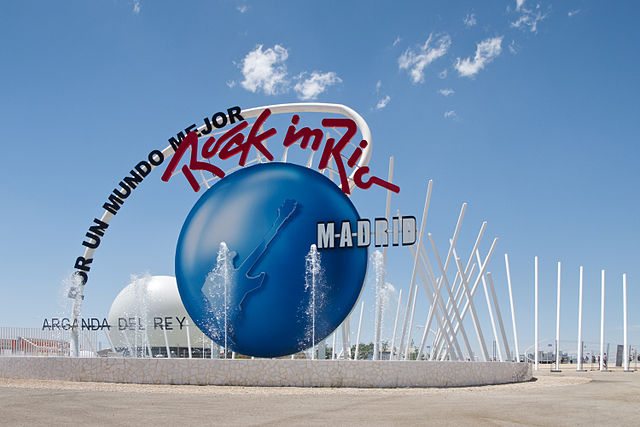Smart toilet technology informs festival attendees of bathroom wait times.
Organizers of the Rock in Rio festival selected Vodafone to supply smart city solutions to tackle a number of challenges in the execution of the music festival.
The Rock in Rio festival started in Brazil but currently has a presence in Portugal, Spain and the U.S.
Rock in Rio festival in Lisbon, Portugal, attracts more than 60,000 visitors every day, which demands appropriate infrastructure and operational coordination. The organizers had five challenges, which were solved through the use of Vodafone’s smart city solutions.
The main challenges were management of the bathrooms, where long queues often form; monitoring the levels in the water reservoirs used for various services, to guarantee water does not run out during the event; management of the power used by the various stages; the amount of waste deposited in rubbish bins; and air quality management.
Vodafone’s solutions allowed the organizers to implement smart toilets. Information is distributed via the Vodafone Rock in Rio application, on a giant interactive tablet that provides information to visitors and on display panels around the event that show the vacancy rate of bathrooms.
Vodafone installed sensors in 350 toilet cabins, which measure the occupancy using ultrasound. Availability is indicated by luminous signals and the information is then transmitted to the operational control center and to visitors.
The organizers said that the implementation of this solution resulted in a reduction in queues at peak times, such as during intervals between concerts. Smart toilets were also useful in operational terms as cabin maintenance could be scheduled for low-use periods.
A smart water solution involved installing sensors to monitor the levels in reservoirs with a capacity of 350,000 liters of water, which supply the bathrooms and the other areas using water, and send alerts to the OCC.
“Previously, it was controlled by eye. This year it was possible to check the water level throughout the day, and we were prepared to act if we had a critical situation, avoiding running out of water,” said Pedro Marques, operations coordinator for Rock in Rio.
Vodafone also installed sensors around the festival area, which allowed the collection of data regarding temperature, humidity and the potential existence of dangerous gases such as carbon dioxide and alcohol in the area for air quality purposes.
Also, through the use of video cameras, a smart waste solution enabled the management team to observe the rubbish bins remotely and determine the best moment to empty them.
In the future, the organizers and Vodafone said they are looking to implement a smart energy solution to generate cost savings through the installation of sensors and other devices to measure energy consumption levels.
“This will let us know what we need for each area and recalculate the capacity of each generator, with no excess or shortfall,” Marques added.

